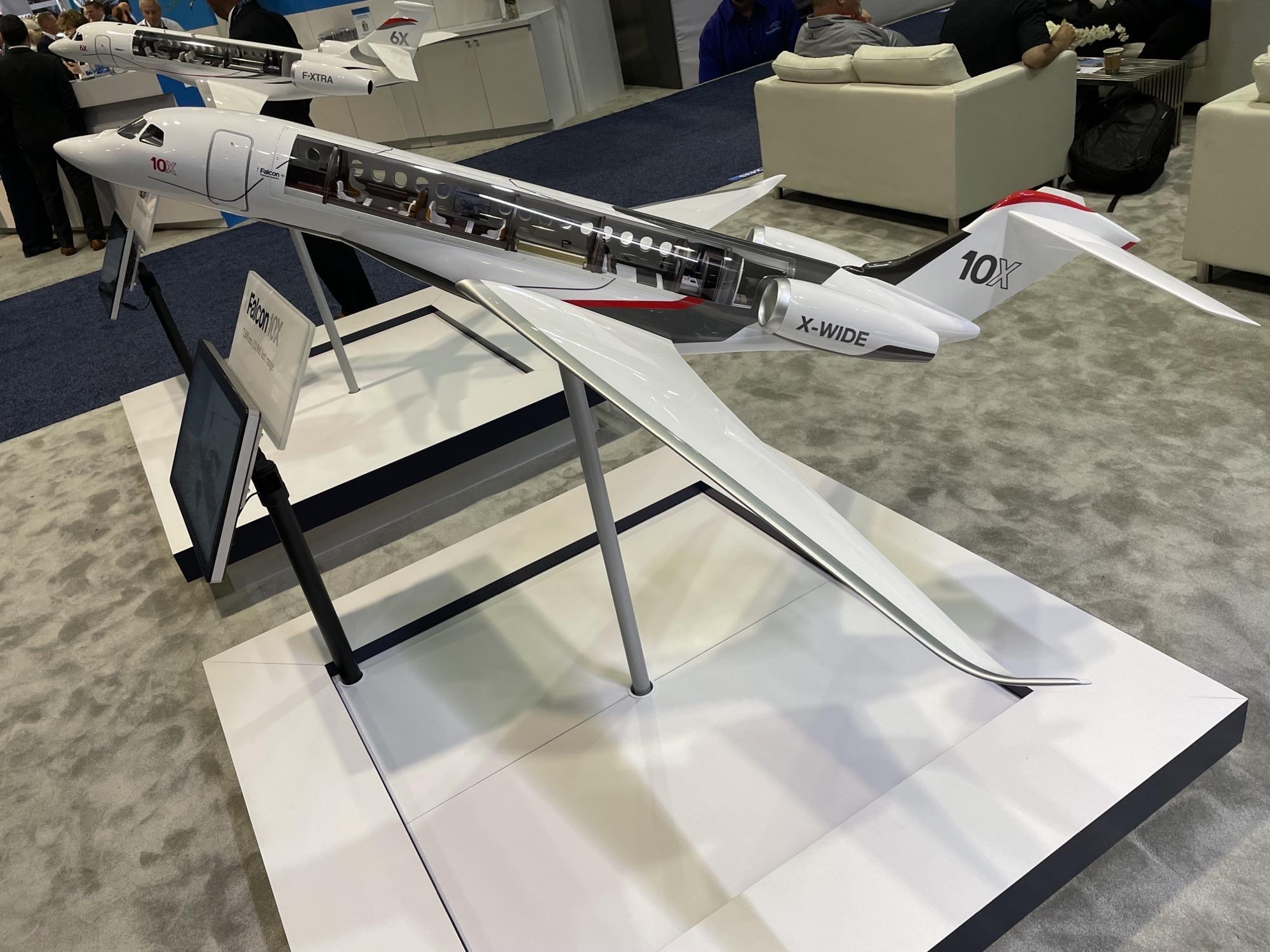
The Dassault Falcon 10X uses the Rolls-Royce Pearl engine.
ORLANDO—Engine manufacturer Rolls-Royce and Alder Fuels signed a memorandum of understanding Oct. 19 to further test sustainable aviation fuel (SAF) sourced from biomass.
The testing, which will include flight tests on a Rolls-Royce Pearl engine, will evaluate the energy efficiency, emissions criteria and carbon level of the SAF produced from Alder Greencrude (AGC), a crude product sourced from regenerative grasses, forest residues and agricultural waste. AGC can be converted into SAF using the existing biomass and petroleum refinery infrastructure.
Alder refers to its product as “SAF 2.0.” First-generation, HEFA (hydroprocessed esters and fatty acids)-based SAF is generated from fats, oils and grease, byproducts that are not scalable to demand for aviation jet fuel.
“Used cooking oil isn’t made [for] SAF; it’s a residual of cooking oil,” explains Alder Fuels President and CEO Bryan Sherbacow. “The fats and greases that are used are byproducts of the protein market—steak, chicken, pork and whatnot—that is being produced. There’s only so much demand for that and it grows at about 2% annually. That’s not enough to displace the amount of oil we need in the world.”
Engine testing will assess the performance of AGC-derived SAF compared to fossil-based jet fuel to further validate its performance as a drop-in replacement for traditional jet fuel and generate data for the development of a 100% SAF specification by standards organization ASTM International.
In addition, the AGC-derived SAF will undergo a full life cycle and criteria emissions assessment. The data associated with the assessment “will be transparently reported to advance global decarbonization efforts,” the companies said.
Rolls-Royce has previously committed to ensuring all its Trent and business aircraft engines are compatible with 100% SAF by 2023. All Trent and business aircraft engines are certified and ready to operate on a 50% SAF blend with traditional fossil-based aviation jet fuel.





